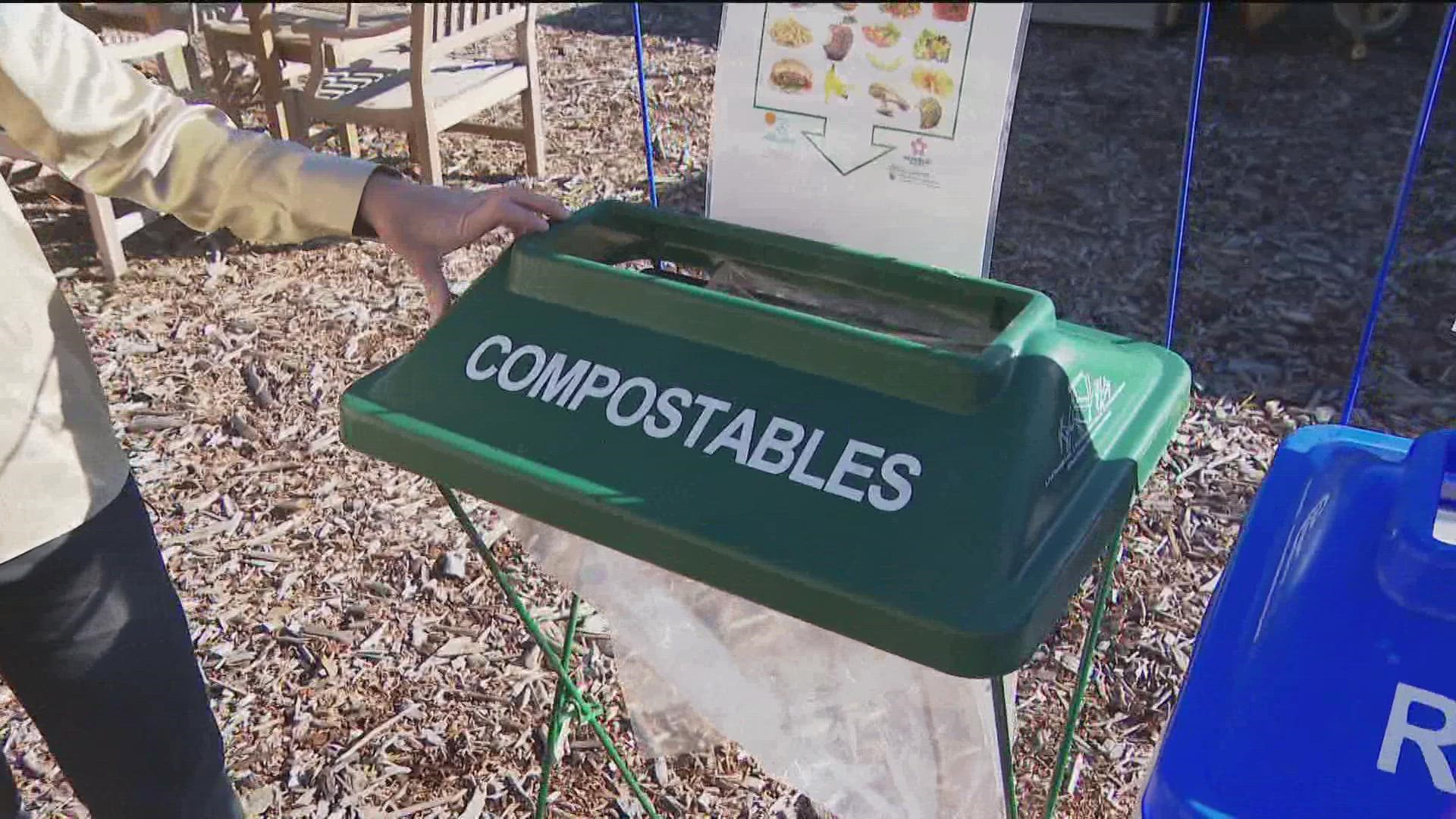SAN DIEGO — A new organics recycling law went into effect on Jan. 1 leading to some confusion about how to comply. Under the statewide initiative instead of putting food waste in the regular trash, residents of California are expected to put it in the green bins and dumpsters.
The new statewide food waste recycling law S.B. 1383 includes:
- Meat & bones
- Dairy & eggs
- Fruits & vegetables (including peels, pits, & rinds)
- Food-soiled paper (napkins, coffee filters, tea bags, unlined paper plates)
- Green waste (plants, grass clippings, leaves, branches)
The new recycling law not only mandates food waste diversion from our homes but from businesses too.
“For the restaurants, it’s mostly food waste. For other businesses, multi-family residences, and apartment complexes, it’s also yard trimmings,” said Mallika Sen, Director of Environmental Solutions for the nonprofit Solana Center.
With the law now in effect, many people are wondering when they’re going to receive the new green bins.
“Some of them have already seen the bins. Others are still waiting,” said Mallika. “And I would just say look to your hauler for when they make it available. The jurisdictions and haulers are all actively working to roll it out, so just wait until you’re contacted, and when you’re contacted, get ready to sort your organics.”
Because of COVID, there is a grace period, and so the timeline for rollout will vary from city to city. If you have a private trash hauler, their timeline will also vary from company to company.
“This is really the kick in the seat of the pants that we needed as a community, as a region, to build the infrastructure and to also look for ways to prevent the amount of food waste that we are generating,” said Jessica Toth, Executive Director for Solana Center.
For more information on the new law and how to comply, you can visit the Solana Center website.
WATCH RELATED: New California law looks to curb food waste

